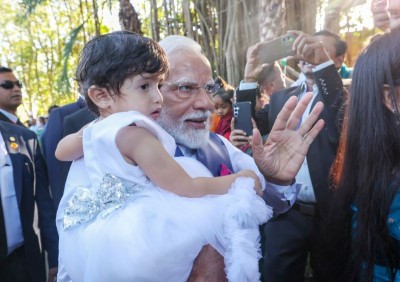
Balakot airstrikes was a message that cross-border terrorism will not be a low-cost option for the adversary, says Rajnath Singh
New Delhi/IBNS: The surgical strike of 2016 and Balakot airstrikes of 2019 were not just military strikes but a strong message to the adversary that terror infrastructure across the border cannot be used as safe haven to wage low-cost war against India.
This was stated by Indian Defence Minister Rajnath Singh while addressing a seminar titled “Air Power in ‘No War No Peace’ Scenario”, organised by Centre for Air Power Studies on the first anniversary of Balakot airstrikes, here on Friday.
Recalling sacrifices of Armed Forces in the service of the country and paying tributes to the martyrs of Pulwama attack, he said the Nation will never forget their sacrifices.
Singh said India’s out-of-the-box response reflected in the Balakot airstrikes forced the rewriting of many doctrines across the LoC and the adversary has to think 100 times for any future misadventures.
He added that the responses displayed India’s defence capability and affirmed its right to defend itself against terrorism.
Rajnath Singh described Balakot airstrikes as a singular event of military precision and impact, saying that it teaches the leadership to think strategic rather than tactical.
“Our approach to terrorism was and will remain a judicious combination of clinical military action and mature and responsible diplomatic outreach,” he said.
Singh assured the nation that the Government will respond appropriately to any threat to India’s national security in the future as well.
He said, the Government has initiated major structural changes to tackle any future threats and it will take some time for the entire set up to be fully operational. He urged all stakeholders to contribute in making these changes effective and efficient.
Singh highlighted that the world stands shoulder to shoulder with India in fighting the terrorism.
Stressing the importance of collective diplomatic and financial pressure to thwart cross-border terrorism, he said, “We have recently seen the impact of collective diplomatic and financial pressure on Pakistan. Terrorists like Hafiz Saeed who were treated like VIPs and heroes, have been put behind bars. We realise that this is not enough and unless Pakistan is made accountable, it will continue with its previous policy of duplicity and deceit. All attempts are being made to work in this direction.”
Rajnath Singh termed hybrid warfare a reality, saying that a mix of kinetic and non-kinetic tools is a genuine threat.
He emphasised the need to reorient the training of soldiers to meet the challenges posed by hybrid warfare, assuring Government support in this regard.
Referring to various aspects of hybrid warfare, namely expanding battle space, time compression and technology infusion, he said, “In such a scenario, artificial intelligence, high-speed weapons and space-based sensors & tools will have a significant impact.”
He stressed on the need to imbibe new technologies and use existing capabilities in innovative ways.
Speaking on the occasion, Chief of Defence Staff General Bipin Rawat said, geopolitics around the globe is changing and India is witness to a number of skirmishes in the region.
He called for maintaining credible deterrence in land, air and at sea at all times, saying that the three Services must work together concurrently to deal with any potential threats.
“Credible deterrence comes from the will of the military leadership and intent of the political class while taking tough decisions. This was amply shown after Kargil, Uri and Pulwama attacks,” he added.
Chief of Air Staff Air Chief Marshal R K S Bhadauria said, in 2019, the Government took bold decision to strike at the heart of terrorist training camps inside Pakistan. Use of air power in a sub-conventional scenario was a paradigm shift, he said. He lauded the political and diplomatic efforts to quickly deescalating the situation.
He described Pakistan’s response after 30 hours as an effort to satisfy the domestic audience. Appreciating the coordination among various organisations in carrying out the successful airstrikes, he said, there was a calibrated effort to ensure that there were no civilian casualties.
He lauded the political leadership for equipping the Indian Air Force with latest technology in recent times.
“We had an edge over Pakistan Air Force in terms of Beyond Visual Range Missile capability at the time of Kargil. We allowed that to slip and thereafter it took a decade and half in our struggle to acquire better capabilities,” he said.
He also stressed on building indigenous capabilities.
Support Our Journalism
We cannot do without you.. your contribution supports unbiased journalism
IBNS is not driven by any ism- not wokeism, not racism, not skewed secularism, not hyper right-wing or left liberal ideals, nor by any hardline religious beliefs or hyper nationalism. We want to serve you good old objective news, as they are. We do not judge or preach. We let people decide for themselves. We only try to present factual and well-sourced news.







